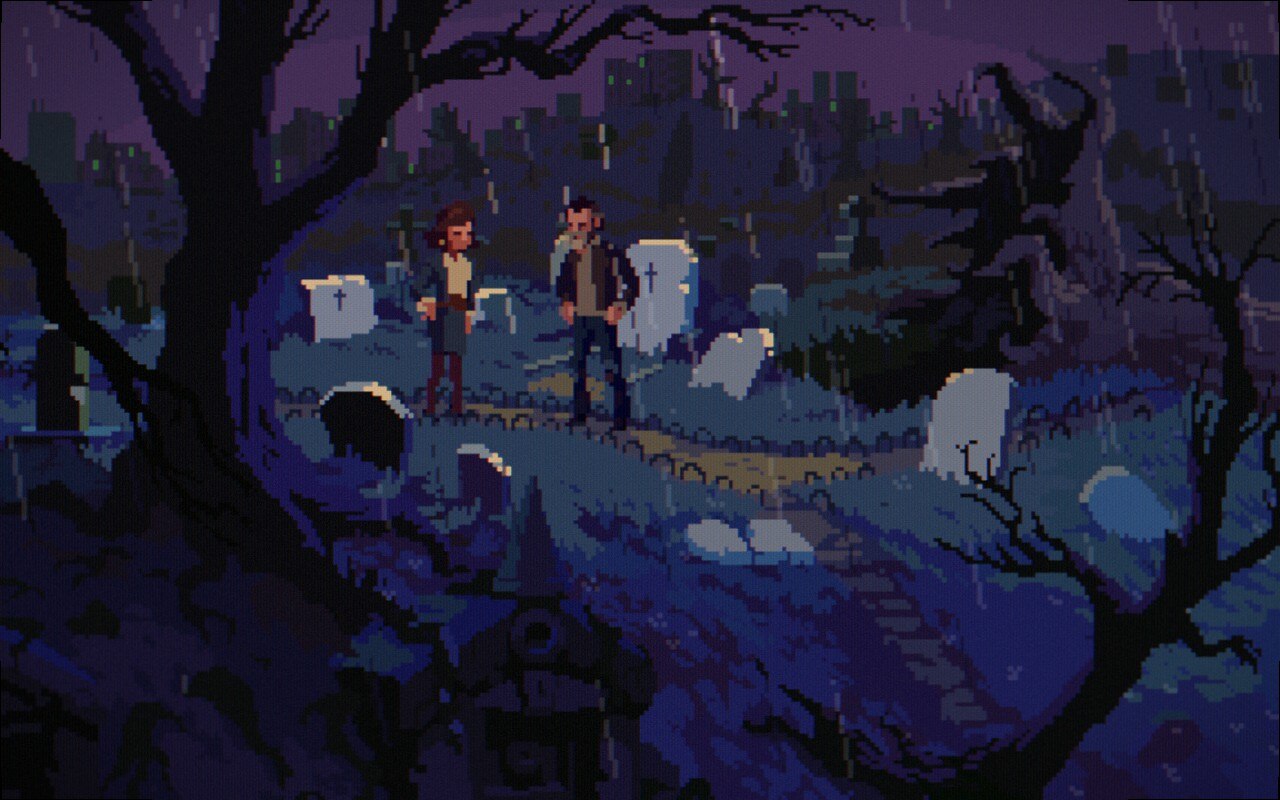The Lion's Song is a thoughtful and beautiful point-and-click game
A mostly interesting set of stories about creativity and flaws.
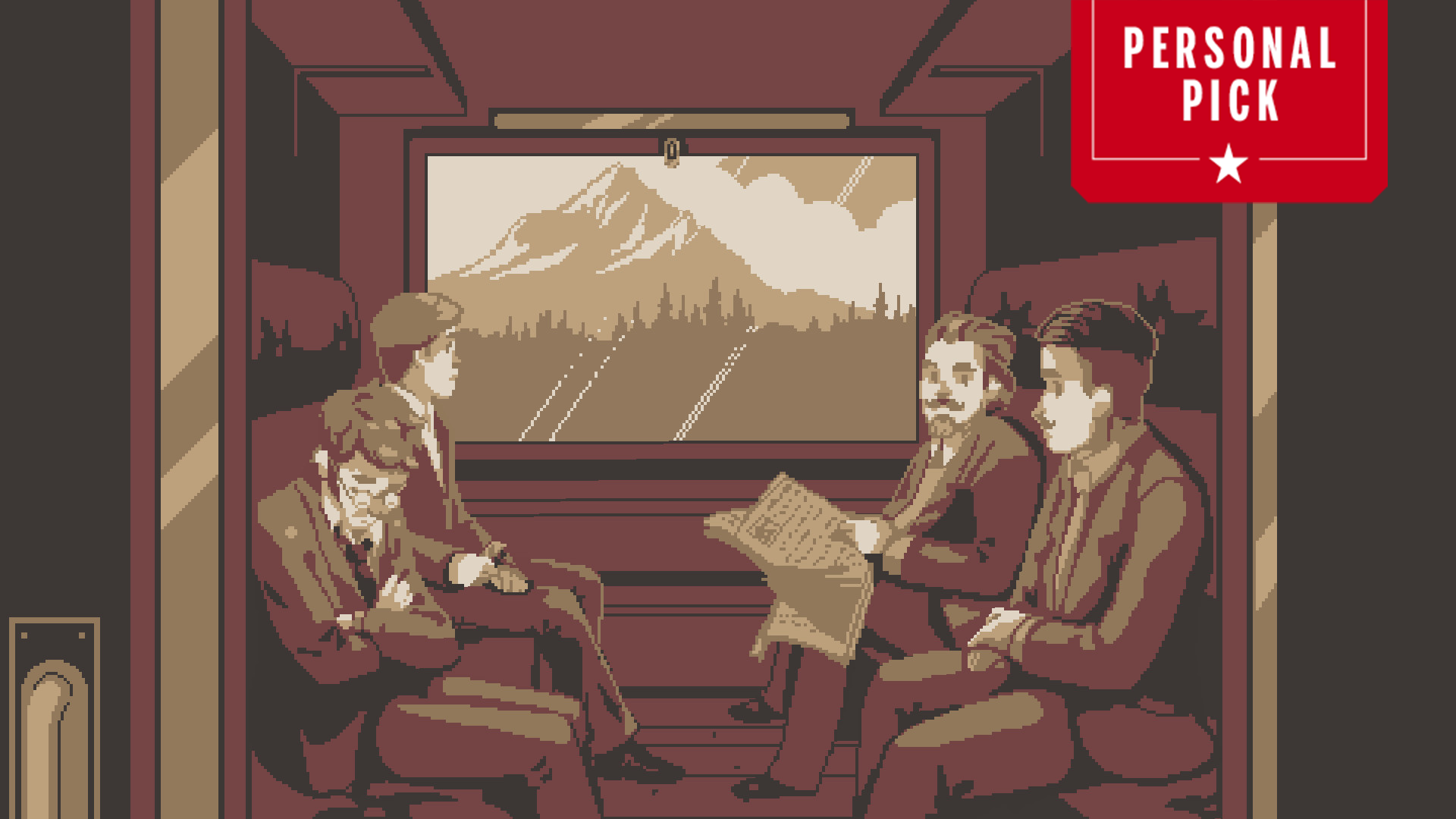
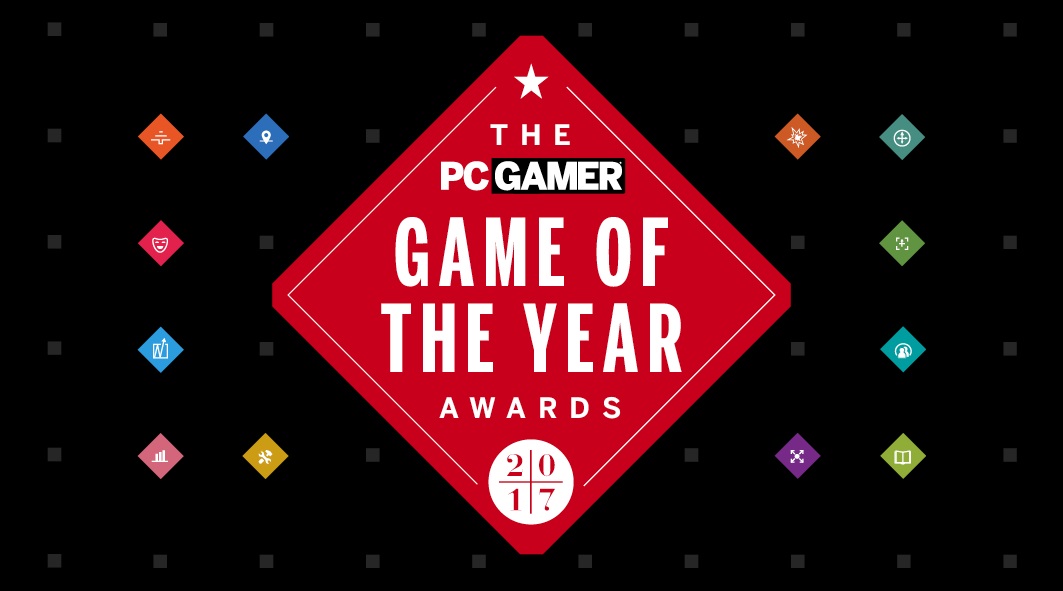
Alongside our team-selected 2017 Game of the Year awards, each member of the PC Gamer team got to champion one favorite from the year.
The Lion's Song is, at first glance, an episodic point and click adventure with a sepia-tone palette. When I describe the game like that it feels like a difficult proposition—one which people will have already decided whether they will play or not. But The Lion's Song doesn't feel like a point and click with a simplified aesthetic at all. Instead, it offers a set of complex, harmonising stories about human creativity and flaws which bubble and fizz within their ascetic aesthetic.
The first three of the four episodes focus on a different character and a different discipline each time. There's Wilma and music, Franz and painting, and Em and mathematics. As each of them struggles to overcome a creative block you learn about the circles they move in and the problems they face.
The first episode is the shortest and simplest, with Wilma heading to a mountain retreat to work on a composition before a big performance. There are some decisions you can make with regard to conversation and interactions but, in playing through a second time, I found myself repeating my actions instead of seeking new outcomes. The points of difference in that second playthrough came in experiencing Wilma's story in the light of knowledge and connections made in later chapters.
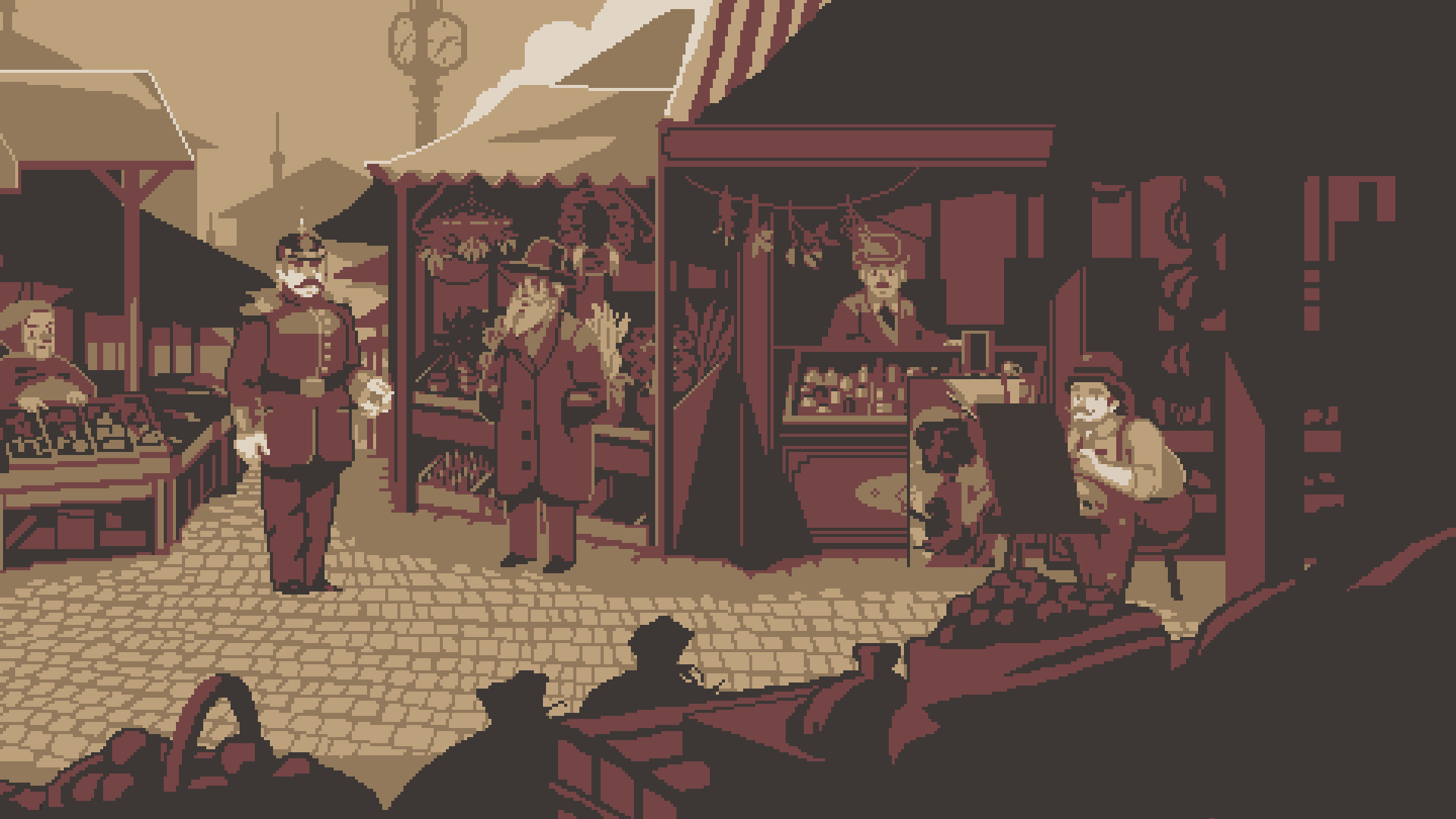
The third episode—Derivation—is a personal favourite. It ends up being a rumination on changing states, particularly in being able to step outside binary systems. The mathematical notation and how it is integrated into some of the scenes to augment the emotional storytelling is also unexpectedly lovely—particularly in the final scene.
The second episode is an interesting one because my second playthrough opened up some subtleties in what I think it's trying to do. It's hard to explain that point without going into spoiler territory but, as with the mathematical notation in episode three, the developers use a particular visualisation technique to offer up the painter's assumptions and readings of people.
In trying to tease out the connections in that second playthrough there was also a moment where the game cut off an interaction in a simple but effective way, reminding me that the player character isn't entitled to just dig into everyone's secrets, regardless of what gaming conventions have conditioned us to do.
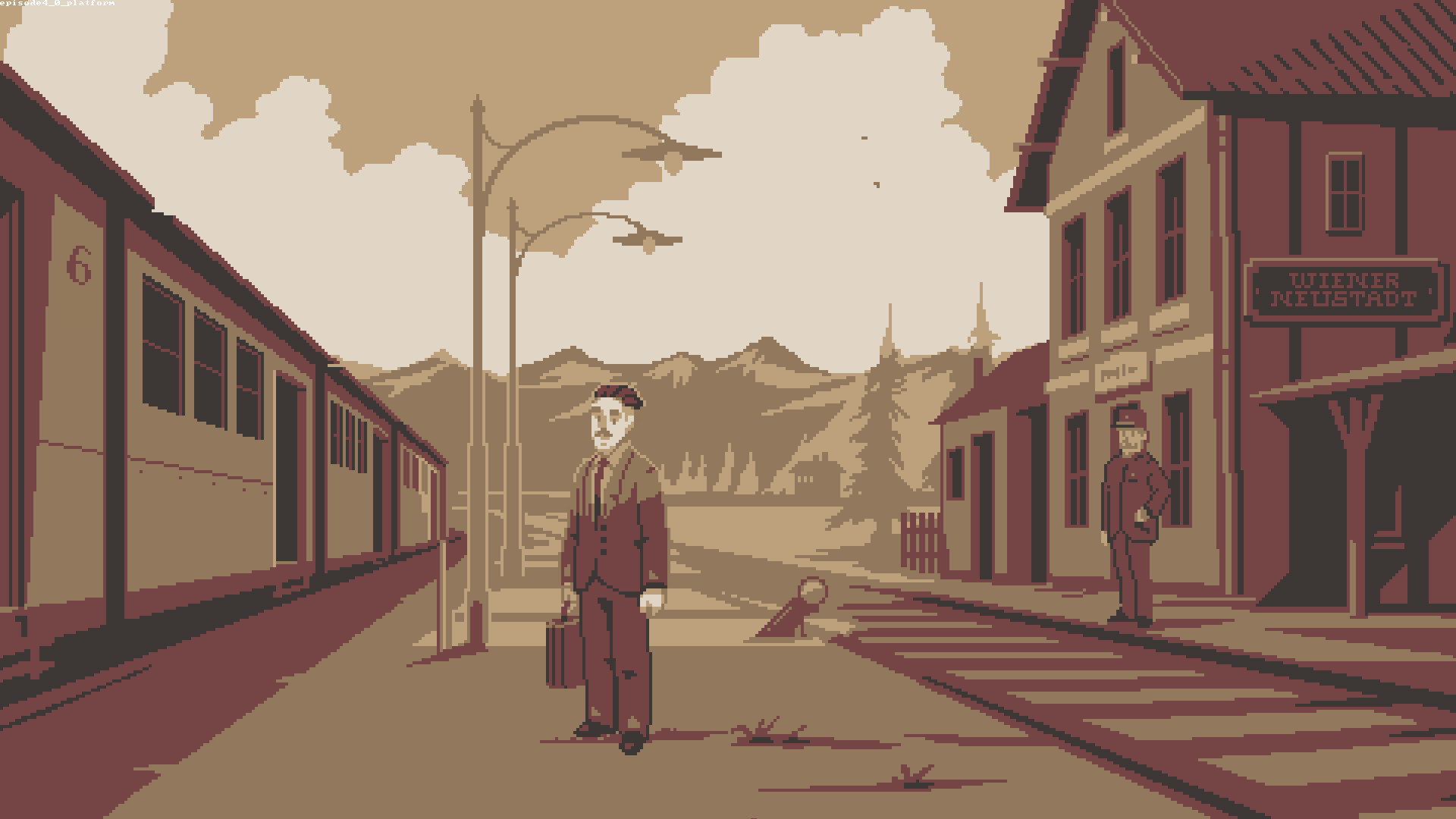
I'm not as fond of the fourth episode. Where the previous three have a lovely tension with the austere presentation, the fourth feels like it embraces too much of the simplification in its storytelling. As a result some of the interactions feel pat and the cast of characters, although illustrating interesting ways the three previous episodes' characters influenced others, felt overly staged.
Keep up to date with the most important stories and the best deals, as picked by the PC Gamer team.
That's not to say it doesn't also do interesting things—there's a particularly nice addition in the feedback at the end which tells you about the choices other people made—it's just that I think it's the weakest link and one element felt particularly jarring given how I'd decided to play Em's choices in episode three.
The whole series is now out and, having played both ways, it lends itself far better to bite sized chunks over a weekend than piecemeal over more than a year, so this is a great point at which to pick it up and ponder its layers. It's thoughtful and beautiful.

